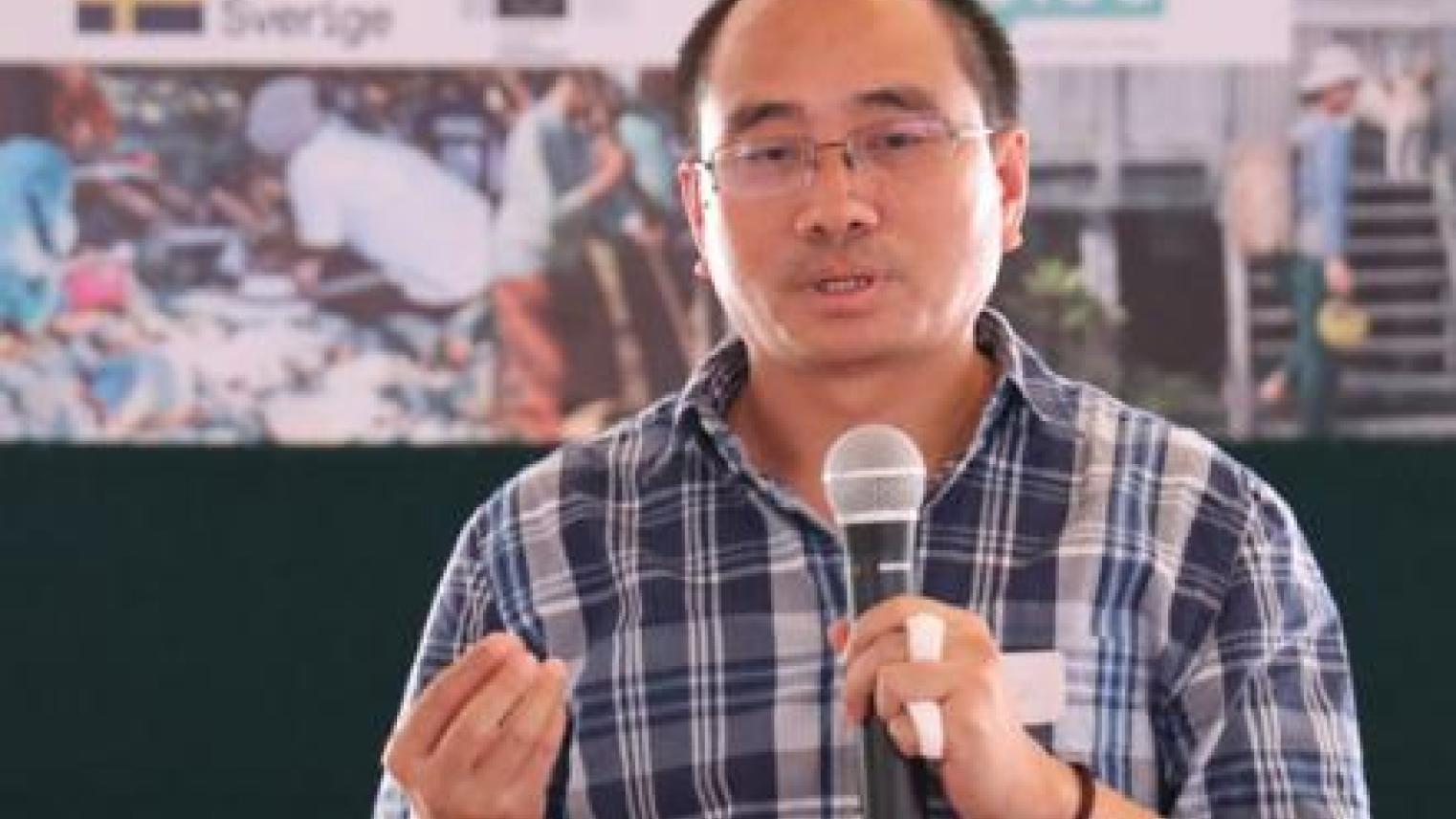PhD Scholar Binota Dhamai appointed member of the UN’s Expert Mechanism on the Rights of Indigenous Peoples

We are delighted to announce that RegNet’s PhD scholar Binota Dhamai, has been appointed member of the Expert Mechanism on the Rights of Indigenous Peoples (EMRIP) for 2020-2022.
“The EMRIP, established in 2007, is one of the most important UN mechanisms dealing with the rights of indigenous peoples around the world and has earned the respect of the indigenous people’s organizations, activists, civil society organizations, academic institutions, and the human rights advocates” Mr Dhamai says.
As one of just seven independent experts on the EMRIP, Mr Dhamai will provide advice directly to the Human Rights Council and assist Member States, upon request, in achieving the ends of the United Nations Declaration on the Rights of Indigenous Peoples through the promotion, protection and fulfilment of the rights of indigenous peoples.
“This year the EMRIP will also carry out a thematic study on the ‘Right to Land under the UN Declaration on the Rights of Indigenous Peoples: A Human Rights focus’ and develop a report on ‘Repatriation of ceremonial objects and human remains under the UN Declaration on the Rights of Indigenous Peoples’ ” Mr Binota adds.
The experts are appointed by the Human Rights Council which gives “due regard to recognized competence and experience in the rights of indigenous peoples, experts of indigenous origin, and gender balance” during the selection process.
“For the past 20 years, advocating indigenous peoples’ rights has not just been my passion and work, but my fundamental commitment,” says Mr Dhamai who is an indigenous (Jumma - Tripura) community member from the Chittagong Hill Tracts (CHT) in Bangladesh.
“I grew up under military rule in the conflict zone of Chittagong Hill Tracts region and witnessed first-hand the systematic violations of indigenous people’s rights, discriminatory behaviour, injustice, and the destructiveness of assimilation policies.
“Unable to stay idle in the face of the communal attacks, land grabbing, arbitrary arrests, extrajudicial killing and sexual violence towards indigenous women, I became involved with civil society organisations such as the Bangladesh Indigenous Peoples Forum and worked towards the promotion and protection of human rights and against militarisation” Mr Dhamai says.
“I started working primarily at the CHT region, and then at the national level with different organisations that focused on protecting Indigenous people’s right to equality and non-discrimination” he continues.
In 2007, Mr Dhamai became the United Nations Indigenous Fellow at the Office of the High Commissioner for Human Rights and a year later, he joined the Asia Indigenous Peoples Pact as the Asia Regional Coordinator of the Human Rights Campaign and Policy Advocacy a position he served until 2012.
In 2010, he co-founded the Indigenous Peoples Human Rights Defenders (IPHRDs) Network in the Asia region under the Human Rights Campaign and Policy Advocacy Programme, thus creating a platform for increasing awareness and support on cases of human rights violations committed against indigenous peoples and their communities.
From 2009 to 2014, he led and coordinated the Asia Indigenous Peoples Caucus for the UN Permanent Forum on Indigenous Issues and the UN EMRIP facilitating advocacy activities with the government and international influential actors.
From 2012 to 2014, he also served as the co-representative of the Asia region to the Indigenous Peoples’ Global Coordinating Group and led the processes for the UN High-Level Plenary meeting known as the World Conference on Indigenous Peoples.
“While working at the local and national level, I established connections with various Asian regional and international Indigenous rights organizations and was involved in numerous important studies. This deepened my understanding of the ethical, social and political underpinnings of human rights and indigenous peoples’ rights,” he says.
Mr Dhamai has worked with 47 different indigenous peoples’ organizations in 14 countries members of the Asia Indigenous Peoples Pact (AIPP).
Under his leadership, a strong lobby, advocacy platform and network on human rights and indigenous peoples rights was established among the indigenous peoples’ organisations, leaders and activists.
He also facilitated and established a strong network with the policy makers, donors, civil society organizations, academic and research institutions, expert members of the UN mechanisms, and other organizations in the Asia region.
“This work has led to increased awareness and support of cases of human rights violations committed against indigenous peoples and their communities,” Mr Dhamai says.
“Now as a member of the EMRIP, I would like to contribute to the mechanism’s development and implementation of its mandate at the global level, to promote indigenous peoples’ rights at the regional and national level based on partnership and dialogue with the Member States and with all stakeholders.”
Commenting on Mr Dhamai’s appointment Dr Imelda Deinla his PhD supervisor said: “This is a well-deserved appointment for our doctoral student, Binota Moy Dhamai. Binota’s appointment as member of the EMRIP is the culmination of long years of tireless activism for the promotion and protection of Indigenous peoples’ rights in Asia and throughout the world.
“I could not think of any other person to best represent Indigenous peoples and to highlight their issues in the global stage than Binota. I am very proud to have been his mentor in the last two years of his research work. I hope to continue providing him with all the support he will need as he tackles this very important responsibility.”
In his congratulatory message Gam A. Shimray, Secretary General of Asia Indigenous Peoples Pact (AIPP), said: “We are confident that he will discharge his duty and responsibilities with commitment and take forward the collective aspirations of Indigenous Peoples.”
Currently Mr Dhamai is serving his second term as a Member of the Board of Trustees of the United Nations Voluntary Fund for Indigenous Peoples (UNVFIP) and as a Board member of the International Network for Economic, Social and Cultural Rights. He takes up the role as a member of the EMRIP on 1 May 2020.